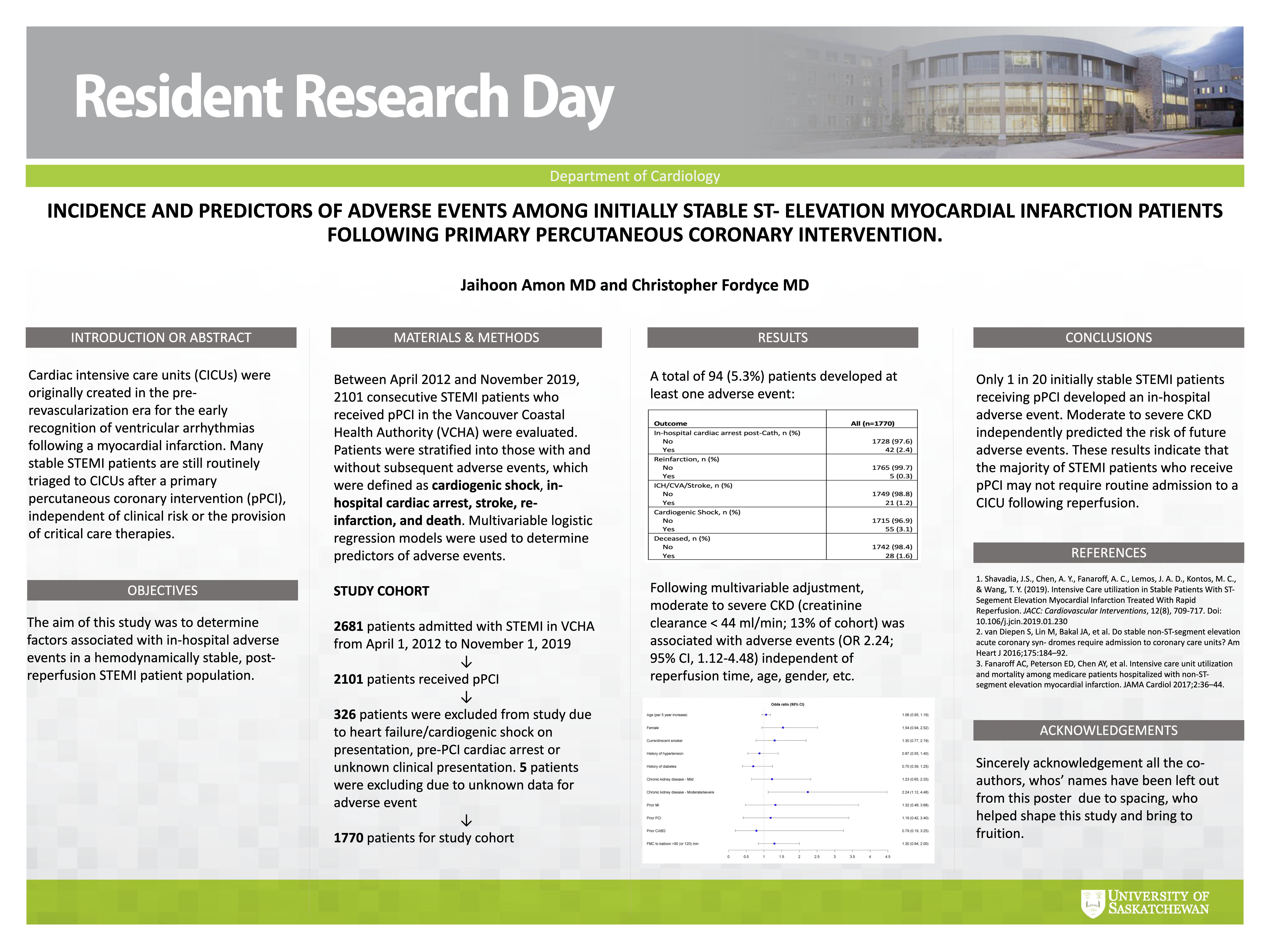
A2.3: Incidence and predictors of adverse events among initially stable ST-elevation myocardial infarction patients following primary percutaneous coronary intervention
Jaihoon Amon, Christopher Fordyce
Background: Cardiac intensive care units (CICUs) were originally created in the pre-revascularization era for the early recognition of ventricular arrhythmias following a myocardial infarction. Many stable STEMI patients are still routinely triaged to CICUs after a primary percutaneous coronary intervention (pPCI), independent of clinical risk or the provision of critical care therapies. The aim of this study was to determine factors associated with in-hospital adverse events in a hemodynamically stable, post-reperfusion STEMI patient population.
Methods: Between April 2012 and November 2019, 2101 consecutive STEMI patients who received pPCI in the Vancouver Coastal Health Authority (VCHA) were evaluated. Patients were stratified into those with and without subsequent adverse events, which were defined as cardiogenic shock, in-hospital cardiac arrest, stroke, re-infarction, and death. Multivariable logistic regression models were used to determine predictors of adverse events.
Results: After excluding patients presenting with cardiac arrest, cardiogenic shock, or heart failure, the final analysis cohort comprised 1770 stable STEMI patients who had received pPCI. A total of 94 (5.3%) patients developed at least one adverse event: cardiogenic shock 55 (3.1%), in-hospital cardiac arrest 42 (2.4%), death 28 (1.6%), stroke 21 (1.2%) and re-infarction 5 (0.3%). Univariable predictors of adverse events were older age, female sex, prior stroke, chronic kidney disease (CKD) and atrial fibrillation. There was no significant difference in reperfusion times between those with and without adverse events. By multivariable analysis, moderate to severe CKD (creatine clearance < 44 ml/min; 13% of cohort) was independently associated with adverse events (OR 2.24; 95% CI, 1.12-4.48).
Conclusions: Only 1 in 20 initially stable STEMI patients receiving pPCI developed an in-hospital adverse event. Moderate to severe CKD independently predicted the risk of future adverse events. These results indicate that the majority of STEMI patients who receive pPCI may not require admission to a CICU following reperfusion.
